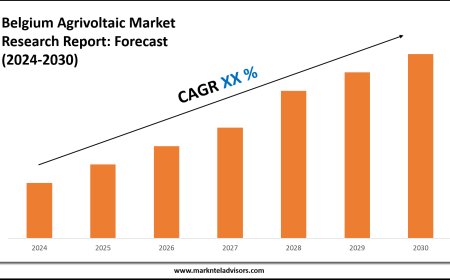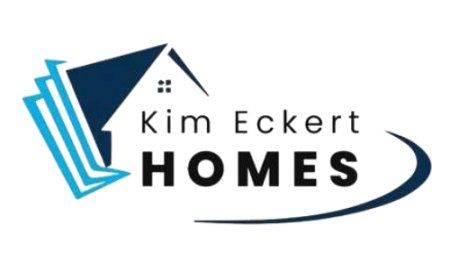How to Improve Your Credit Score for an FHA Loan in Virginia?

Understanding the Importance of Your Credit Score
Applying for an FHA loan in Virginia can be your pathway into homeownershipeven if you dont have perfect credit. Backed by the Federal Housing Administration, these loans offer flexibility for first-time buyers, lower-income households, and credit-challenged applicants. However, your credit score still matters.
FHA loan credit score requirements Virginia lenders look for tend to follow federal standards, but many lenders apply additional rules. Getting your score where it needs to be can dramatically increase your chances of approval and unlock better terms. So, what can you do to improve it?
Target Scores for FHA Approval in Virginia
Heres what to aim for:
-
580 and above: Qualifies for a 3.5% down payment
-
500 to 579: May still qualify but requires a 10% down payment
-
620 and higher: Preferred by many Virginia lenders to ease underwriting
While the FHAs national minimum is 500, Virginia mortgage companies often require 620 or above. By reaching or exceeding that mark, you'll not only improve your oddsyou might also score a better interest rate.
Step 1: Review Your Credit Report
Start by pulling your credit reports from all three bureaus: Equifax, Experian, and TransUnion. You can get them free from .
Look for:
-
Errors in balances, late payments, or personal information
-
Outdated accounts or duplicated debts
-
Signs of fraud or identity theft
Dispute any inaccuracies directly with the credit bureaus. Correcting these issues alone could give your score a noticeable lift.
Step 2: Pay Down Your Credit Card Balances
Credit utilization plays a major role in your score. It's calculated by dividing your total card balances by your total available credit. Try to keep this number under 30%under 10% is ideal.
In Virginia markets where homes move fast, lowering your utilization could be the edge you need to get pre-approved more quickly.
Step 3: Avoid New Credit Applications
Each time you apply for a credit card or loan, it triggers a hard inquiry which can reduce your score by a few points. In the months leading up to your FHA application:
-
Skip store credit card offers
-
Wait on auto loans or financing
-
Avoid personal loan apps unless absolutely necessary
Lenders like consistency, and Virginia underwriters may be cautious if your recent inquiries seem impulsive or excessive.
Step 4: Catch Up on Past-Due Accounts
If you have accounts that are past dueeven by just 30 daysits essential to bring them current. Delinquencies drag your score down and signal instability.
-
Contact creditors to negotiate payment arrangements
-
Prioritize accounts with the highest interest rates or largest balances
-
Ask if older negative marks can be removed upon full payment (some creditors offer pay for delete options)
In Virginias competitive real estate zones like Loudoun or Arlington, a clean payment history could be the deciding factor between approval and delay.
Step 5: Keep Older Accounts Open
The length of your credit history matters. Closing older cards can shorten your average account age and shrink your total available creditboth of which lower your score.
Unless there are high fees involved, keep dormant cards active by using them occasionally for small purchases and paying them off quickly.
Step 6: Set Up Automatic Payments or Reminders
Payment history makes up 35% of your credit score. Even one missed utility bill or car payment can cause significant damage.
Virginia lenders reviewing FHA applications often favor borrowers with reliable recent payment patterns. Set up autopay or calendar reminders to avoid slipping through the cracks.
Step 7: Consider a Credit-Builder Loan or Secured Card
If you're rebuilding credit from the ground up, these tools can help:
-
Credit-builder loans: Offered by community banks and credit unions, they report regular payments to credit bureaus
-
Secured credit cards: You provide a cash deposit, which sets your credit limitthen use the card like any other and make monthly payments
Both help you show responsible use of credit, which is key to climbing above the FHA loan credit score requirements Virginia lenders enforce.
Step 8: Monitor Progress Without Hurting Your Score
Use free apps or credit tracking services to stay updated without initiating hard inquiries. This allows you to:
-
Track when disputed items are corrected
-
Watch for big shifts due to balance changes
-
Time your FHA application when your score peaks
Some platforms offer personalized tips based on your specific profile, making them especially useful for goal-based credit improvements.
Step 9: Focus on Total Financial Readiness
Improving your credit is just one part of FHA readiness. Also prepare:
-
Income documentation (W-2s, tax returns, pay stubs)
-
Stable employment history
-
Savings for down payment and reserves
-
Low debt-to-income ratioideally under 43%
If you're in a Virginia housing market with higher FHA loan limitslike Northern Virginiayou'll need even stronger financial credentials to support larger loan amounts.
Virginia-Specific Support for FHA Buyers
The Commonwealth offers supportive resources through:
-
Virginia Housing (formerly VHDA): Offers down payment grants, financial education, and special FHA lending options
-
City programs in Richmond, Roanoke, Norfolk: Some provide homebuyer counseling or forgivable loans
-
Local nonprofits and housing agencies: Ideal for one-on-one coaching on credit and budgeting
Even experienced buyers benefit from exploring these tools to boost affordability and reduce barriers.
When to Apply After Boosting Your Score
Once your score improves:
-
Get prequalified or preapproved by a Virginia lender who offers FHA loans
-
Confirm your score with their systemsome use the middle score from all three bureaus
-
Lock your rate during favorable market windows to save on interest over time
Applying during high-score months (after payments post, balances drop, or disputes resolve) can make a big difference in your approval and monthly payment.
Conclusion: Your Score Is a Stepping Stone, Not a Roadblock
Meeting FHA loan credit score requirements Virginia lenders set isnt about perfectionits about preparation. Whether you're polishing a score in the low 600s or climbing out of the high 500s, consistent effort makes a big impact. Focus on the basics, lean on local resources, and youll not only meet the standardyou might surpass it.
In todays housing market, a better score doesnt just get you approved. It gets you options, peace of mind, and maybe even the keys to a place youll call home.




































